A recovery-friendly home must continue the patient’s healing from addiction. Since the patient will spend the rest of the recovery journey at home, the environment must be conducive to healing and recovery.
However, it’s not just about the place. A home conducive to addiction recovery includes the people living with the patient. They must also support the patient’s recovery by showing care and compassion.
Essentially, setting up a recovery-focused home helps the patient recover easily and encourages them to continue with the support of the people around them. So how do you go about it? Here are five proven ways to help create a recovery-friendly home and be there for your loved one.
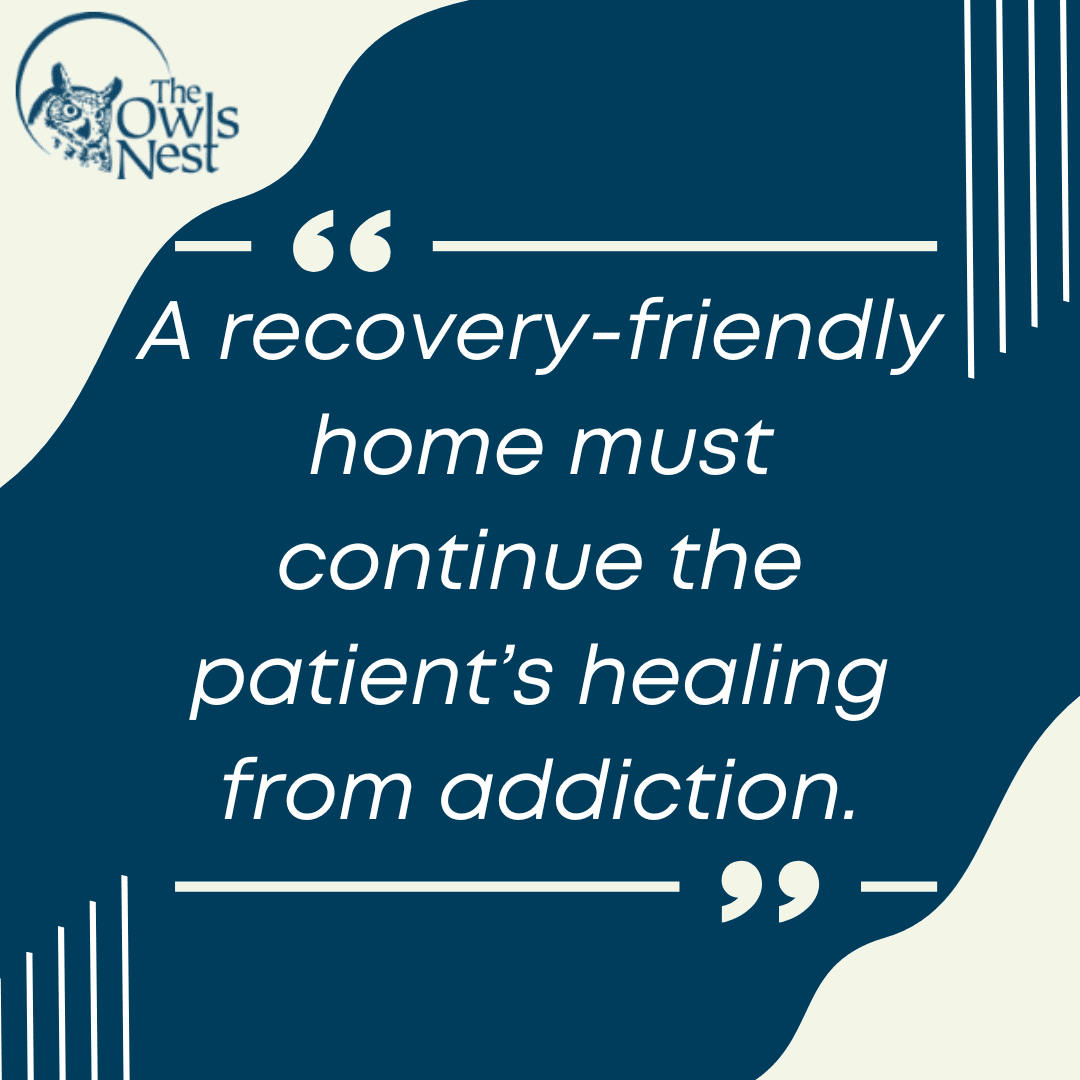
5 Ways You Can Make Your Home Recovery Friendly
First Things First: Cost Concerns
Setting a home conducive to recovery can be challenging, especially if you’re cash-strapped. You might need to buy new things or replace old stuff at home. Plus, the process itself requires a little bit of work and brainstorming. However, remember that you don’t need a complete home makeover to make it environment-friendly. You could set aside a few hundred bucks for things you need to buy. But if you buy in thrift stores, you can save money.
Knowing how to make your home recovery-friendly doesn’t need to be expensive. You need to be creative and resourceful in using and reusing things currently in the house and then buying those you don’t have.
1. Perform General Cleaning Before the Patient Arrives Home
Cleaning the house must be number one on your list. When the patient arrives home, the house must feel homey to the patient’s eyes because they’ve spent months in the rehab facility, and a familiar place like home can make them happy. General home cleaning involves dusting, sweeping, mopping, and tidying. Don’t misconstrue this with deep cleaning.
Usually, all you need to do is tidy up the house by replacing curtains, vacuuming the sofas, washing the dishes, changing bed sheets, and cleaning the bathroom. A clean home is a foremost requirement for a recovery-friendly environment. If the surroundings aren’t clean, the patient will not feel comfortable in the house and might get sick if the place is dirty. Expected expenses for general cleaning would be cleaning supplies.
You’ll save more money with cleaning equipment like a vacuum, microfiber cloth, broom and dustpan, mop, and buckets.
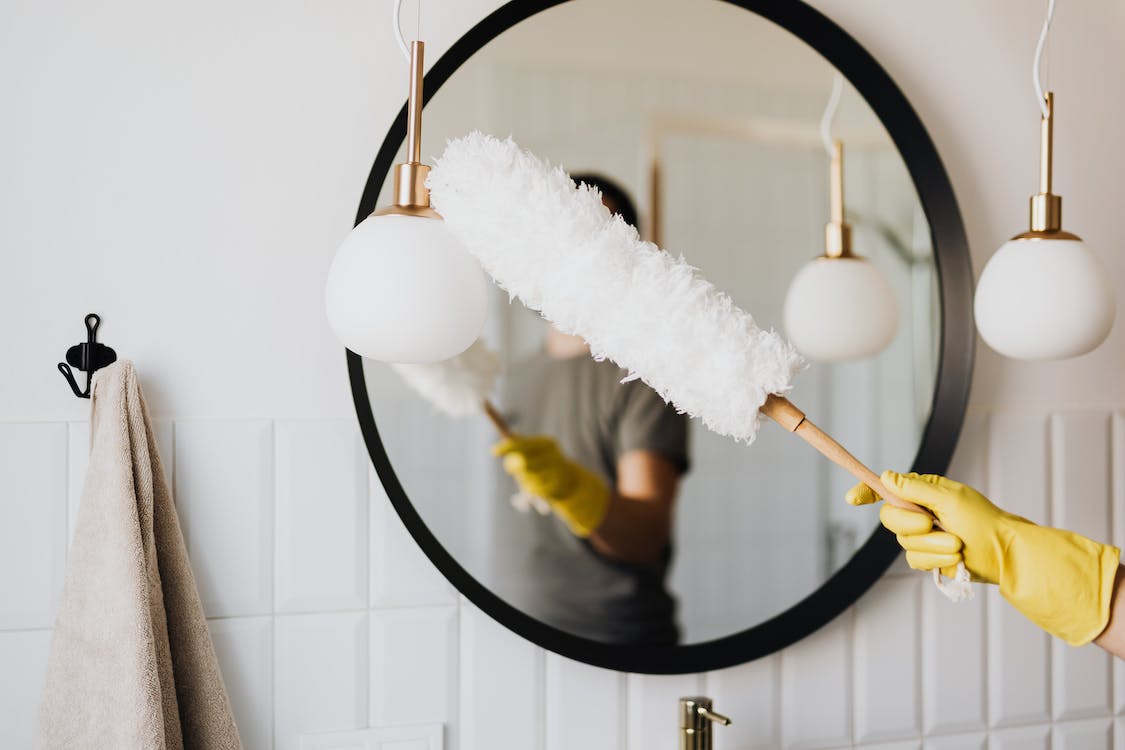
2. Add More Natural Lightning than Artificial Lighting
Natural lighting affects people psychologically and emotionally. It doesn’t directly affect our physical health but improves a person’s mood. For recovering addicts, natural lightning can help relieve and reduce stress. More importantly, natural light improves our body’s circadian rhythm. This can help make it a recovery-friendly home while also lowering electricity consumption.
The circadian rhythm regulates the sleep-wake cycle. In other words, the circadian rhythm is the body’s internal clock that dictates when we should wake up and sleep. Waking up to the bright sunlight is one way of using natural light to influence your body’s sleep-wake cycle. It’s best to use thin curtains in the patient’s room so natural light can still enter in the morning.
At night, encourage the recovering patient to use yellow to orange lighting or buy a lamp that mimics natural sunlight. Blue, white, or bluish-white lightning at night negatively affects the circadian rhythm. Naturally, our bodies respond to darkness by releasing melatonin, the hormone responsible for drowsiness and sleep. Blue light from lamps, bulbs, and even our smartphone screens disrupts the release of melatonin which can cause problems with sleeping.
3. Maintain a Positive and Can-do Attitude toward the Recovering Addict
Your attitude toward the recovering patient contributes to the home’s overall vibe. Even if the house looks nice, the absence of family support can ruin everything. Knowing how to support addiction recovery at home still impacts a patient’s recovery journey.
As much as possible, never tell or imply to the patient that they’re a burden. These hurtful words can undo months of treatment in the rehab facility and affect their mental health.
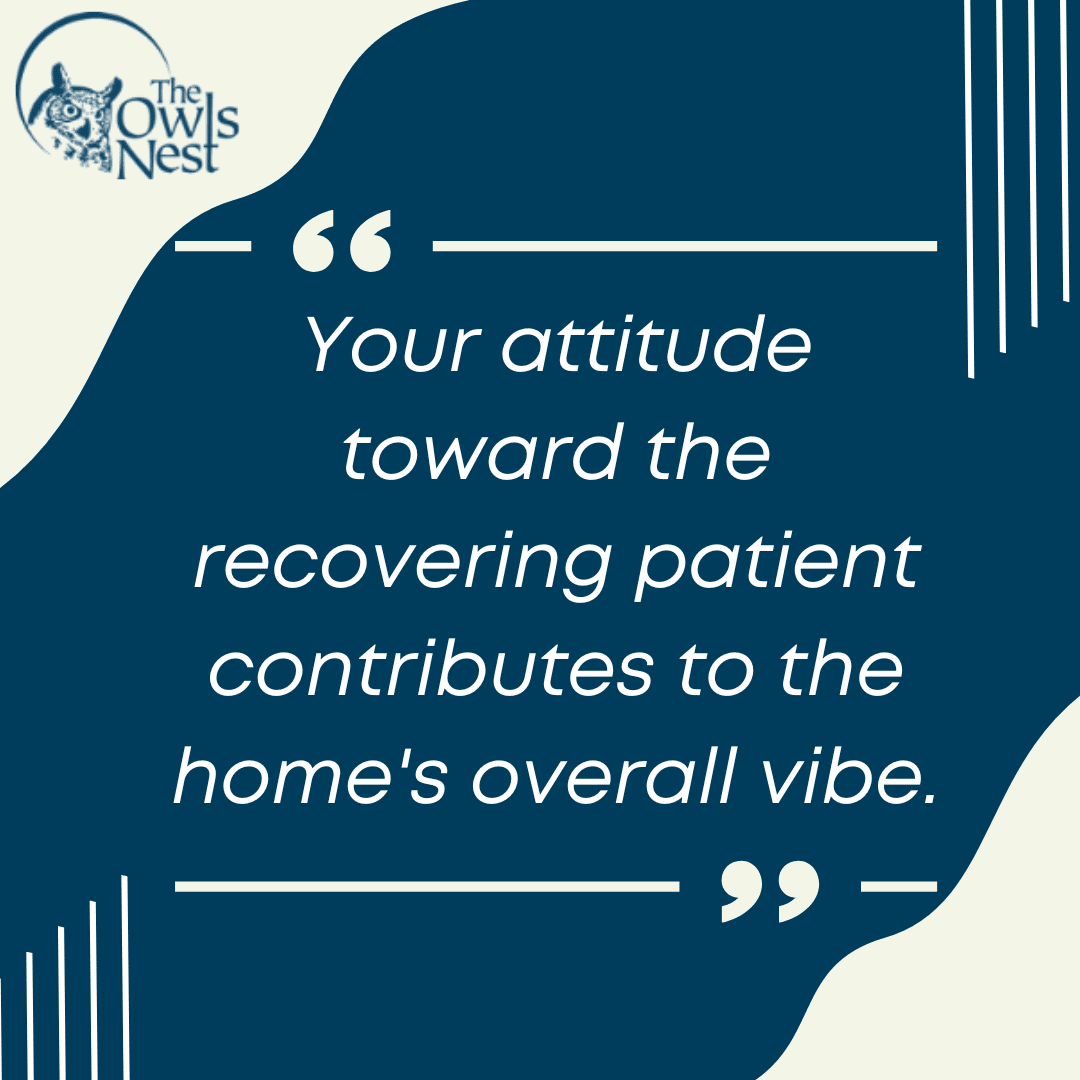
4. Rearrange Furniture for a Fresher and Newer Look
From time to time, rearranging the furniture can give your house a fresher look. When recovering patient sees a new home layout, it’ll make them feel happy because it looks different from the last time they saw the house. Of course, you or your recovering family member have been in the rehab facility for a long time. The new home layout can make them excited about living in the house again.
You can try placing the bed near the window in the patient’s bedroom for more natural light or rearrange the cabinets and drawers if possible. However, don’t force yourself to do some rearrangement if it’s challenging to do. You can rearrange the sofa and look for another position.
5. Provide a Space for Meditation and Exercise
A space for meditation and exercise contributes to a recovery-friendly home. Exercise is important because it has psychological effects that can boost one’s mood and focus. Meditation can be an alternative to physical exercise, especially if the recovering patient doesn’t prefer physical activities. The space of meditation must be quiet and bright during the day. As much as possible, the room must have a window so that air can enter.
If the surrounding environment is noisy, try soundproofing the meditation room to reduce outside noise. Aside from meditation, you can also use this room for praying or faith-based meditation if you’re religious.
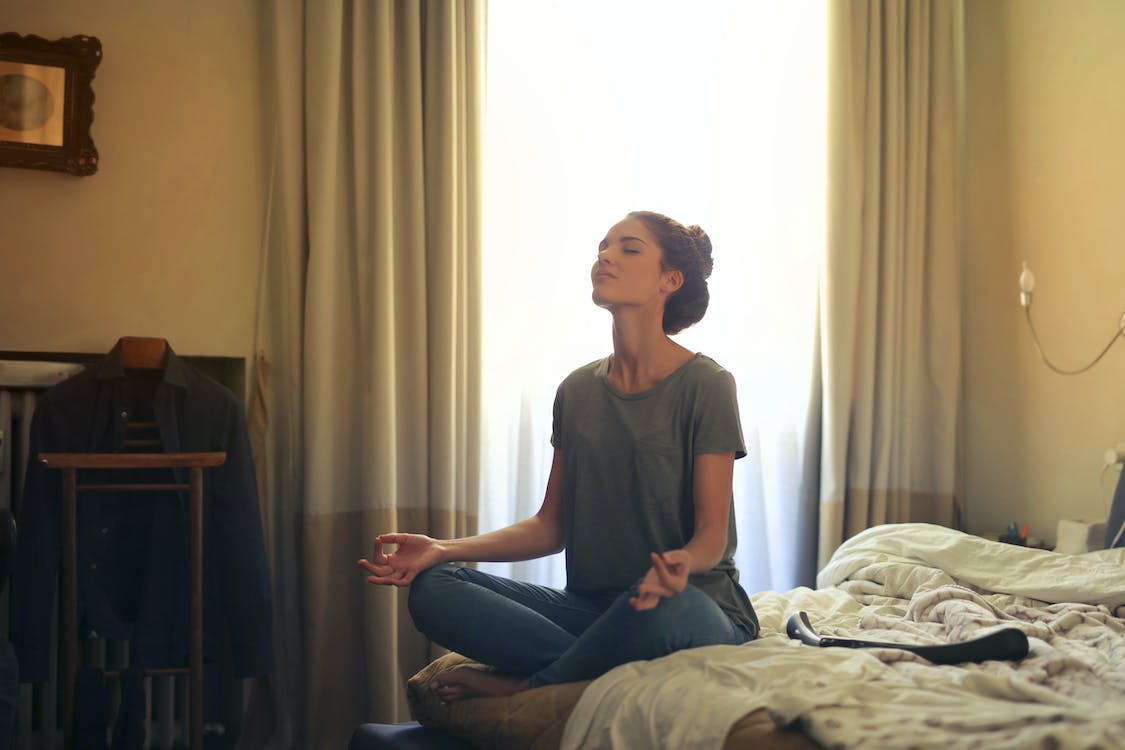
Conclusion
Cleaning the house and introducing new home layouts can make the house a recovery-friendly place. However, the support of family members is also crucial because emotional support significantly impacts addiction recovery. If the patient feels ignored or ridiculed for their ordeal, their recovery journey will be severely impacted.
Need professional help with caring for an addiction recovery patient? The Owls Nest is here for you. This privately owned outpatient substance abuse treatment center offers supportive housing, counseling, and other addiction treatment programs. As the primary carer, it’s important to make the extra effort to make the house recovery-friendly and provide the emotional support the patient needs. Call (843) 669-6088 now to schedule a quick consultation.
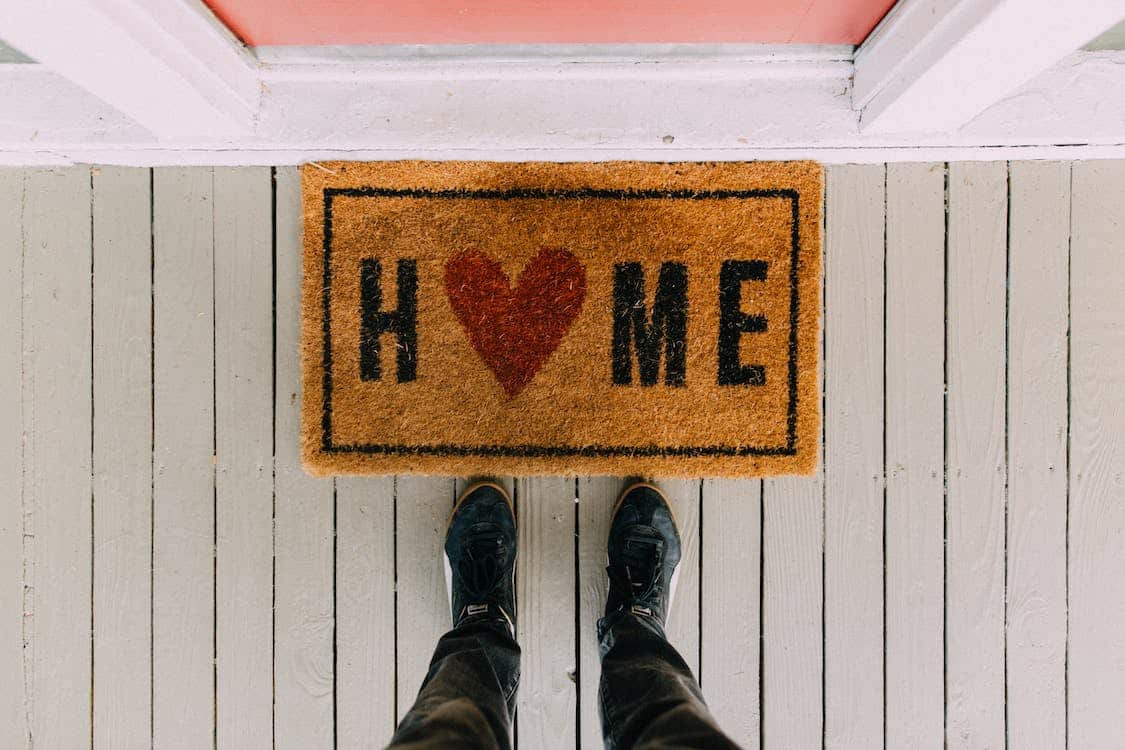
Comments